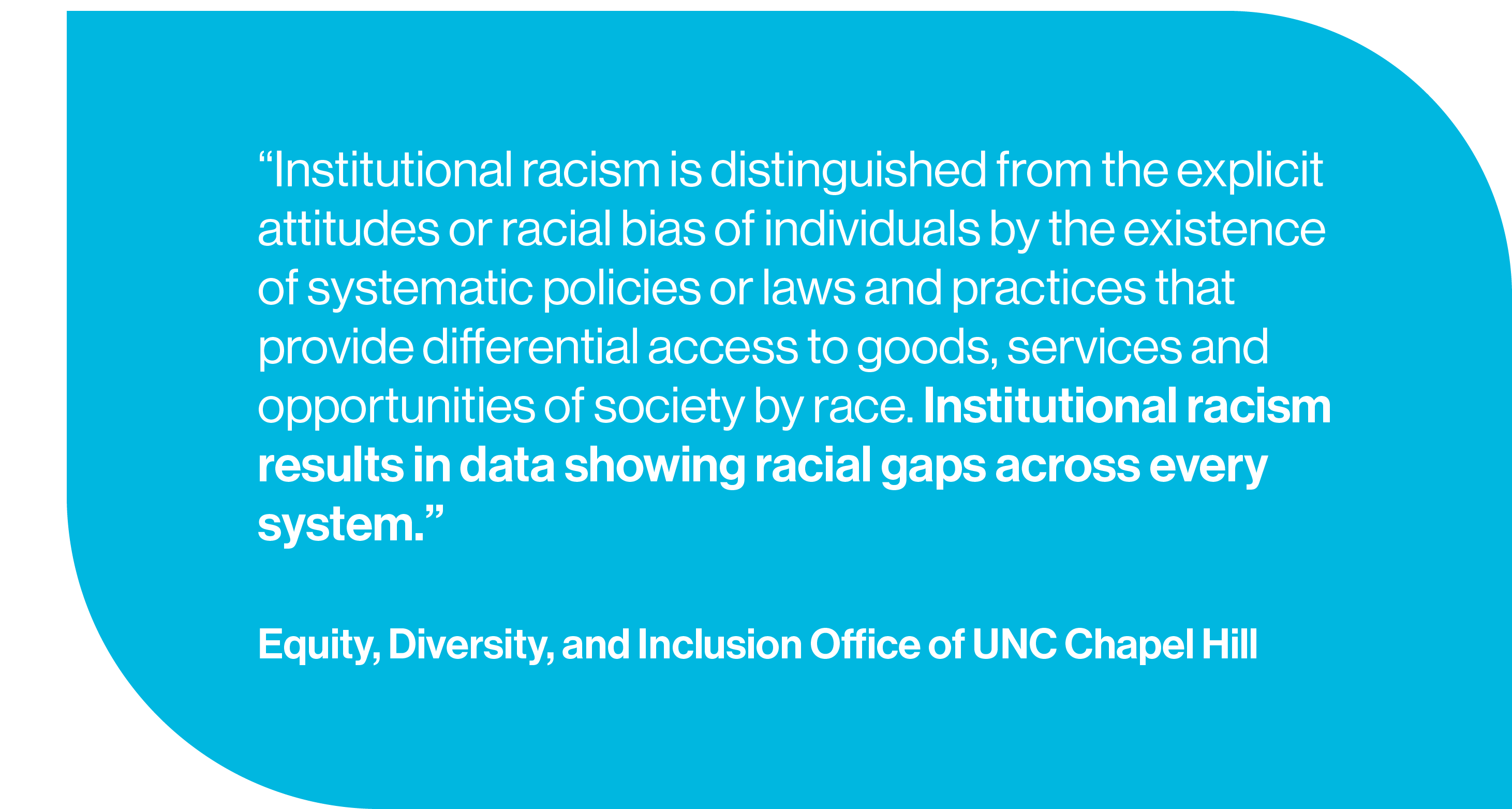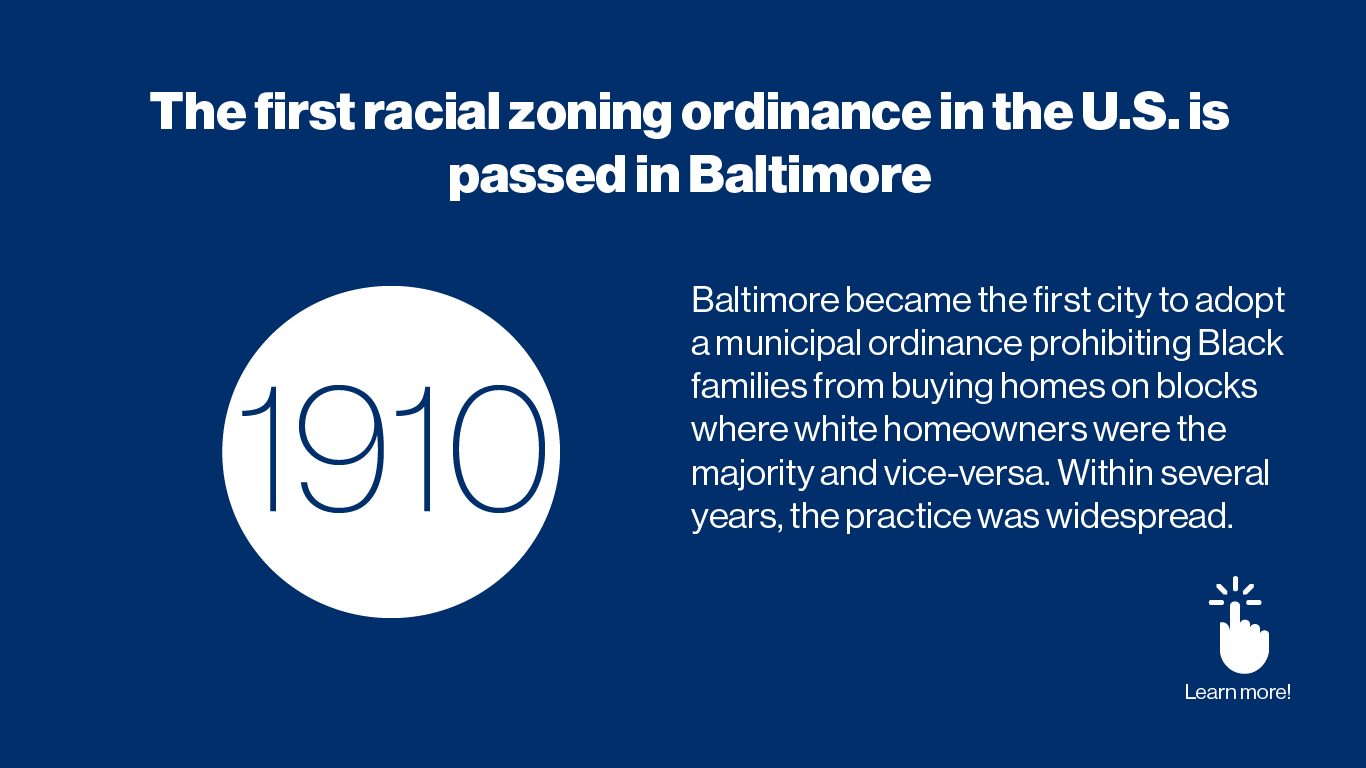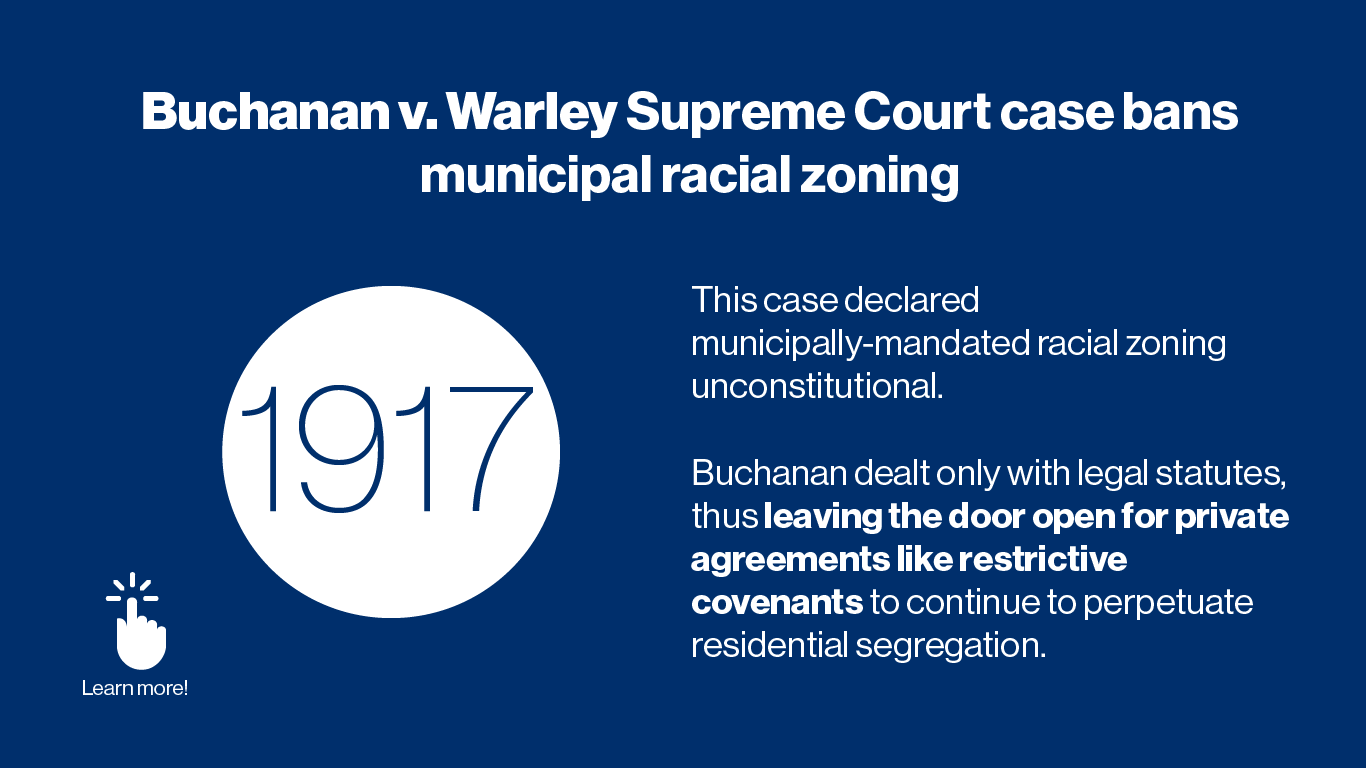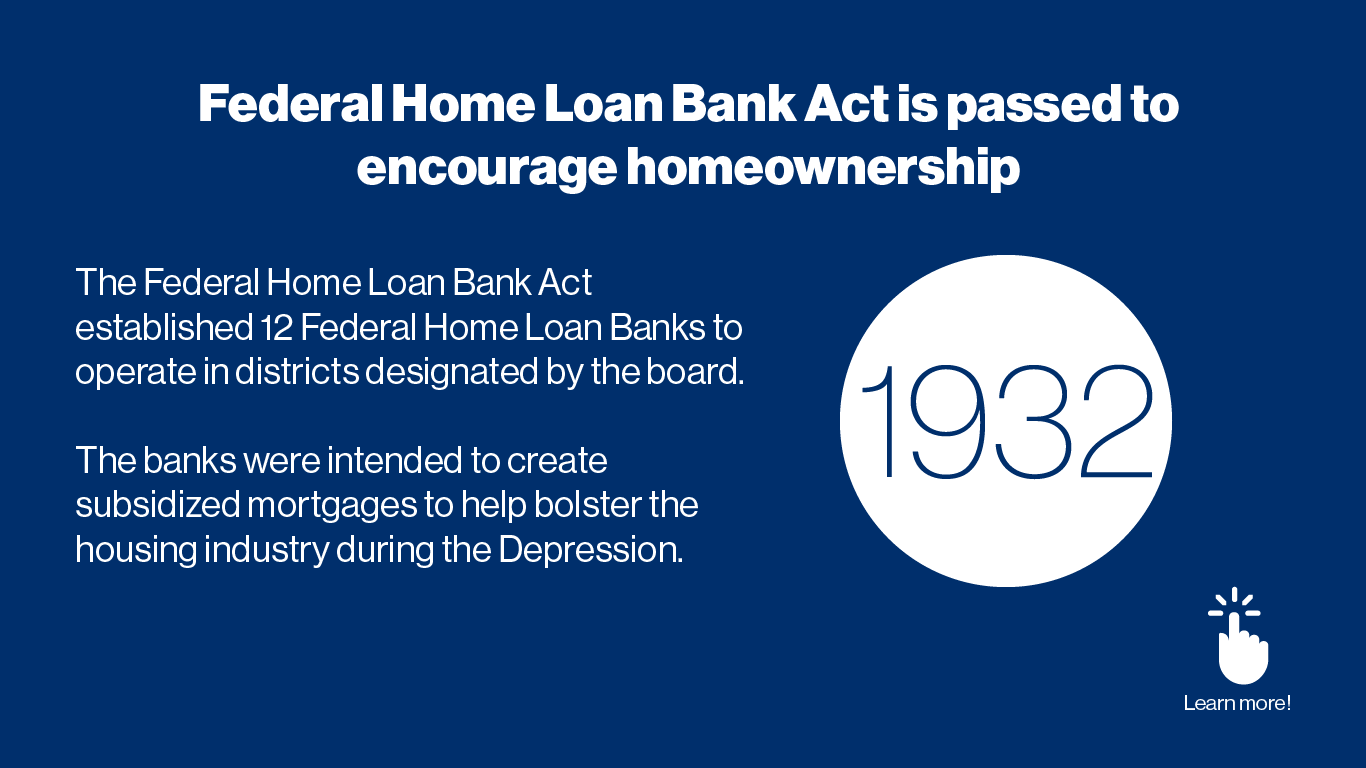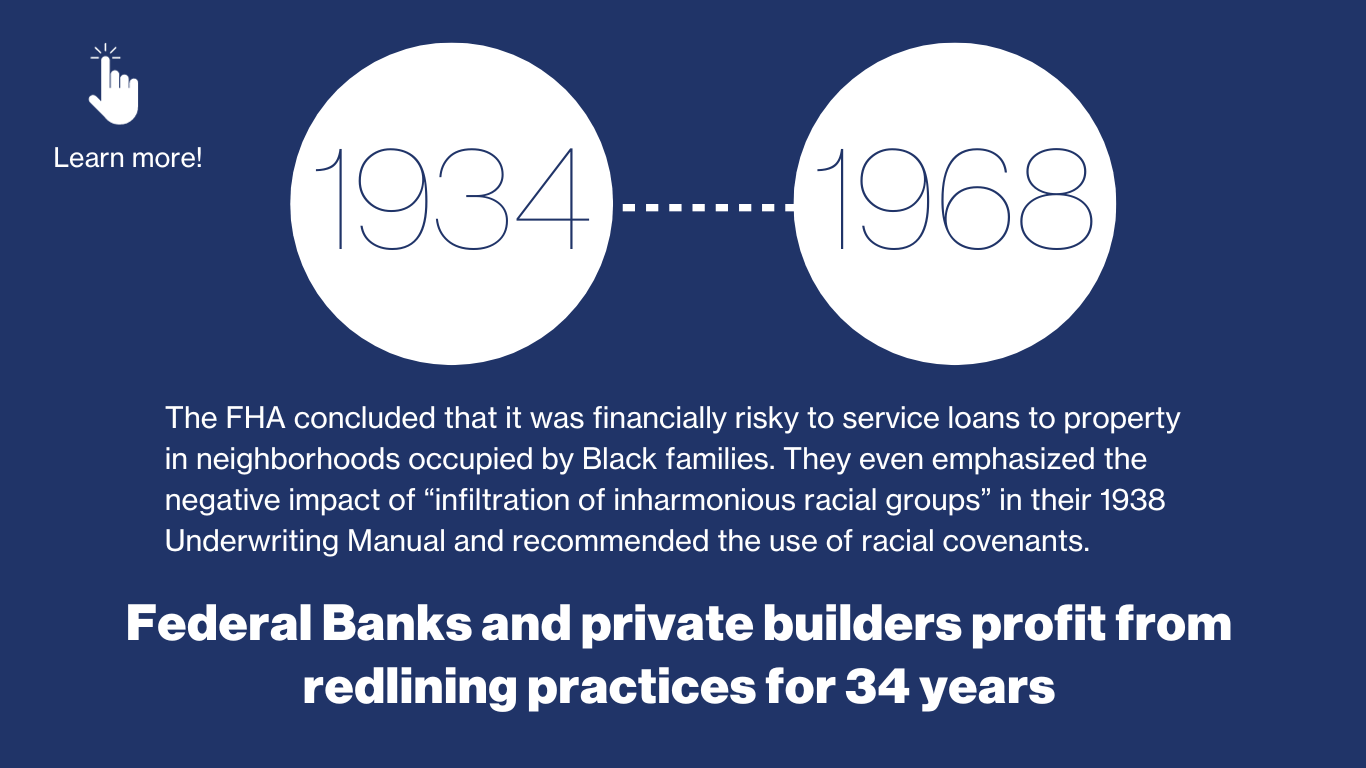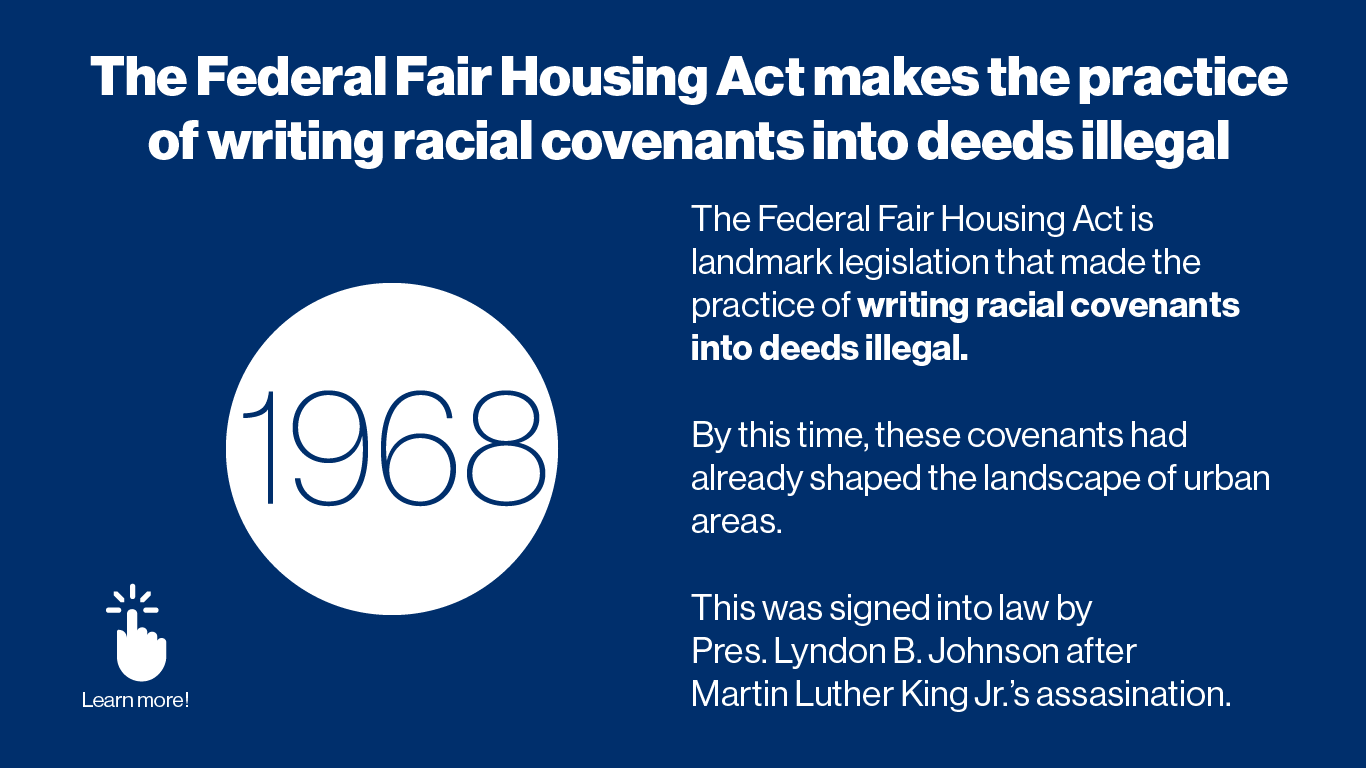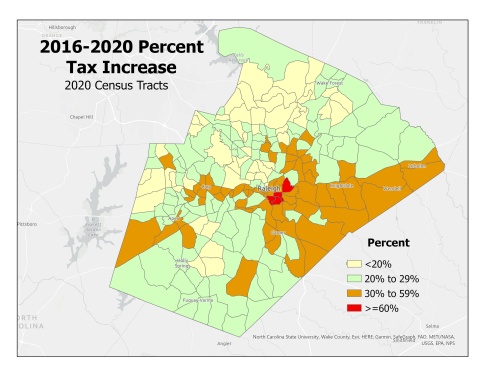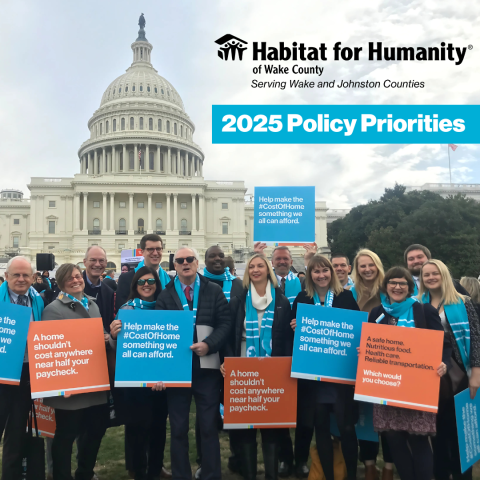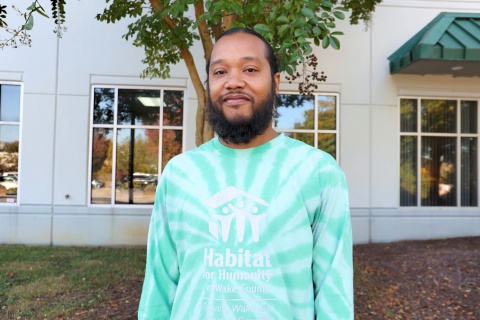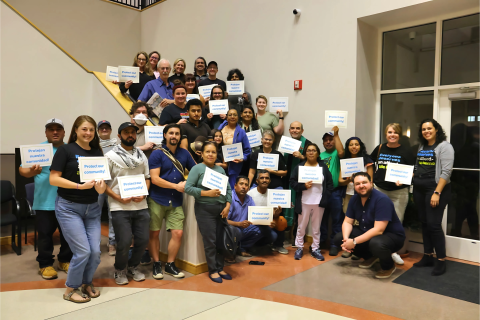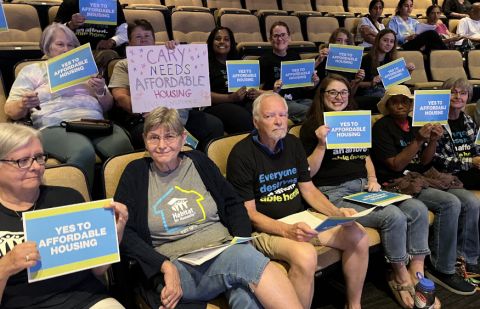Knowing our Past Makes Us Powerful
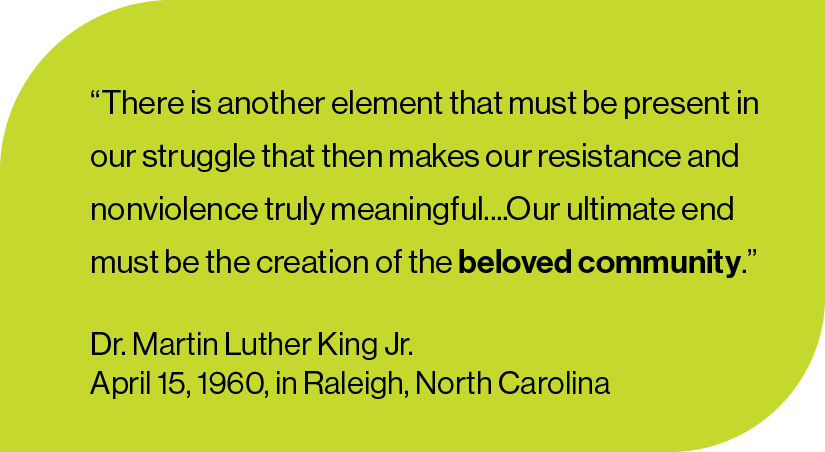 Habitat Wake strives to create a world in which everybody has access to affordable housing. We partner with the community to build homes that are purchased by local families at an affordable cost and advocate for local, state, and federal policies that promote access to affordable homes on a broader level. However, we can’t solve the affordability issue without addressing the long history of racial discrimination in housing.
Habitat Wake strives to create a world in which everybody has access to affordable housing. We partner with the community to build homes that are purchased by local families at an affordable cost and advocate for local, state, and federal policies that promote access to affordable homes on a broader level. However, we can’t solve the affordability issue without addressing the long history of racial discrimination in housing.
Race + Housing 101
Housing serves as the foundation of many core aspects of our lives. A safe, affordable place to call home provides a connection to the surrounding community and opportunities for economic mobility. Homeownership provides the opportunity for a family to build wealth and pass on this wealth to the next generation. However, centuries of institutionalized racial discrimination in housing have created intentionally segregated communities with harmful consequences that endure to this day.
One of these consequences is the stark racial homeownership gap. The rate of homeownership for white households is 74%, compared to 44% for Black households and 49% for Hispanic/Latinx households.
Black families were denied access to mortgages, well-resourced neighborhoods, and homeownership subsidies through redlining and restrictive covenants. This historic housing discrimination has resulted in a large wealth differential between white and Black families.
The long-term impacts are clear today:
As we advocate for equitable access to affordable housing in Wake and Johnston counties, we aim to offer educational resources and encourage elected officials to promote policies that support equitable housing practices. We invite you to join us by reading through the resources below to learn more!
